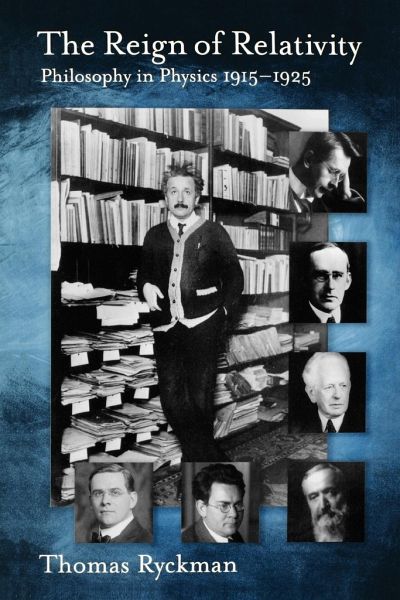
The Reign of Relativity
Philosophy in Physics 1915-1925
Versandkostenfrei!
Versandfertig in 1-2 Wochen
82,99 €
inkl. MwSt.
Weitere Ausgaben:

PAYBACK Punkte
41 °P sammeln!
Universally recognized as bringing about a revolutionary transformation of the notions of space, time, and motion in physics, Einstein's theory of gravitation, known as "general relativity," was also a defining event for 20th century philosophy of science. During the decisive first ten years of the theory's existence, two main tendencies dominated its philosophical reception. This book is an extended argument that the path actually taken, which became logical empiricist philosophy of science, greatly contributed to the current impasse over realism, whereas new possibilities are opened in revis...
Universally recognized as bringing about a revolutionary transformation of the notions of space, time, and motion in physics, Einstein's theory of gravitation, known as "general relativity," was also a defining event for 20th century philosophy of science. During the decisive first ten years of the theory's existence, two main tendencies dominated its philosophical reception. This book is an extended argument that the path actually taken, which became logical empiricist philosophy of science, greatly contributed to the current impasse over realism, whereas new possibilities are opened in revisiting and reviving the spirit of the more sophisticated tendency, a cluster of viewpoints broadly termed transcendental idealism, and furthering its articulation. It also emerges that Einstein, while paying lip service to the emerging philosophy of logical empiricism, ended up siding de facto with the latter tendency. Ryckman's work speaks to several groups, among them philosophers of science and historians of relativity. Equations are displayed as necessary, but Ryckman gives the non-mathematical reader enough background to understand their occurrence in the context of his wider philosophical project.




